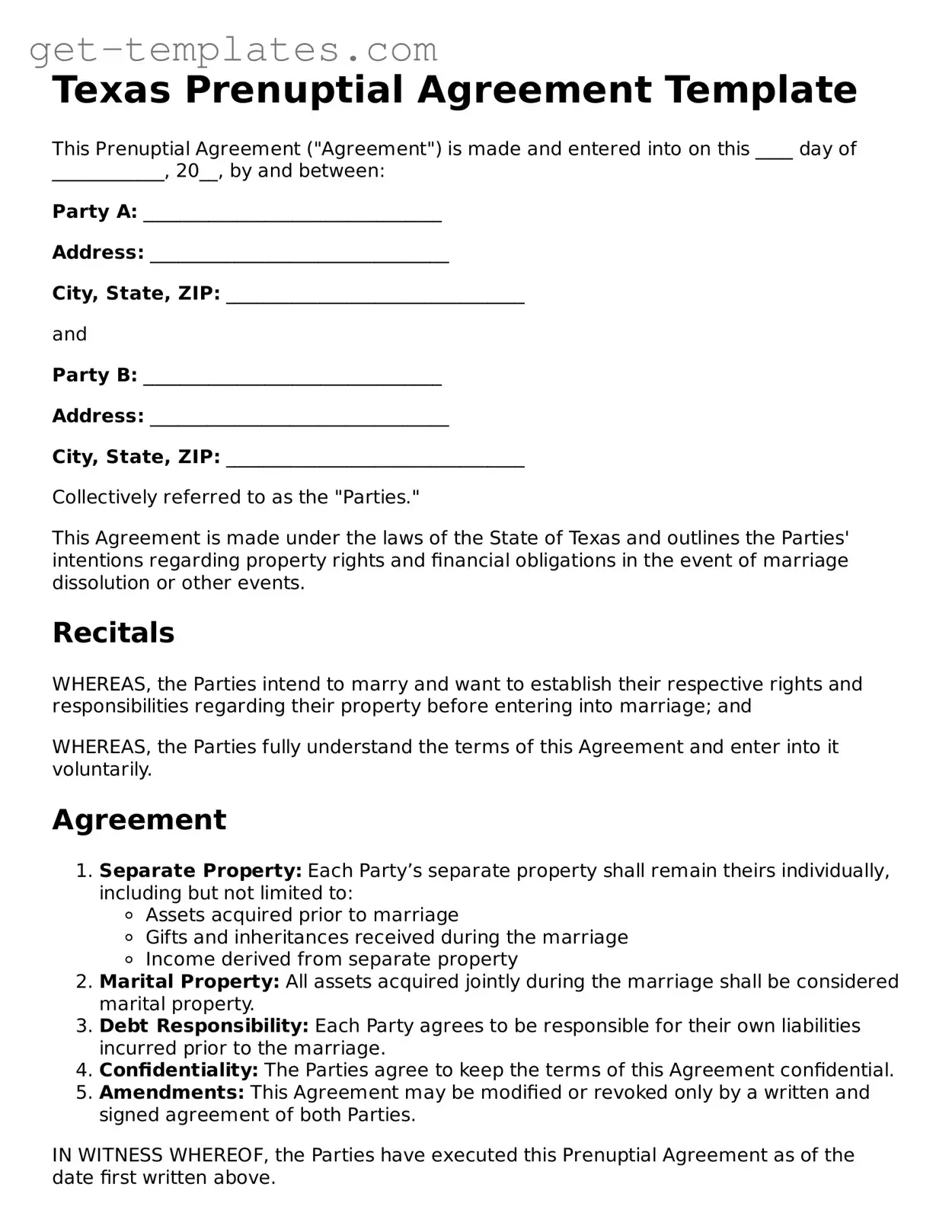Attorney-Approved Prenuptial Agreement Document for Texas
A Texas Prenuptial Agreement form is a legal document that outlines the terms and conditions regarding the division of assets and responsibilities in the event of a divorce or separation. This agreement can help couples clarify their financial rights and obligations before entering into marriage. Understanding the importance and structure of this form is essential for those considering marriage in Texas.
Get Document Online

Attorney-Approved Prenuptial Agreement Document for Texas
Get Document Online
You’re halfway through — finish the form
Finish Prenuptial Agreement online — edit, save, download made easy.
Get Document Online
or
⇓ PDF Form
